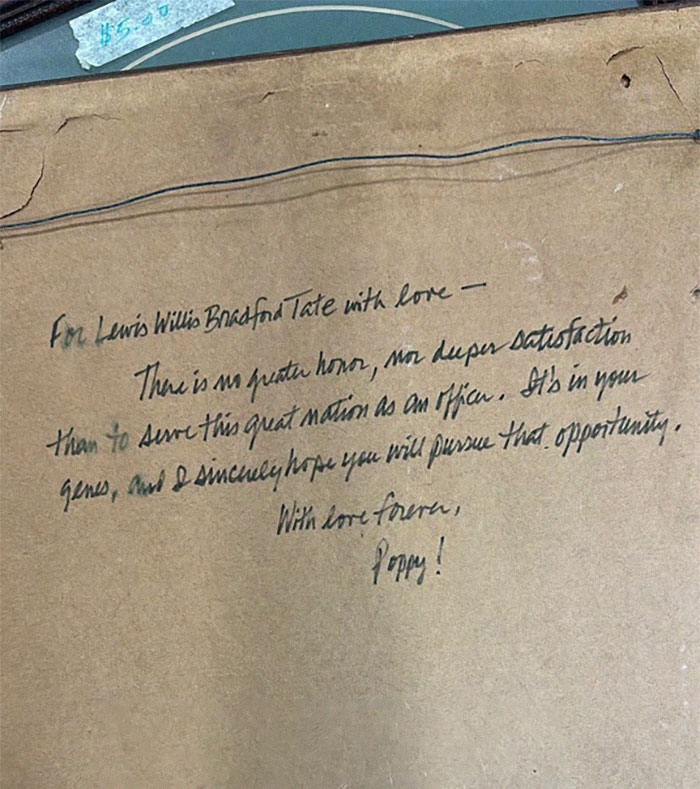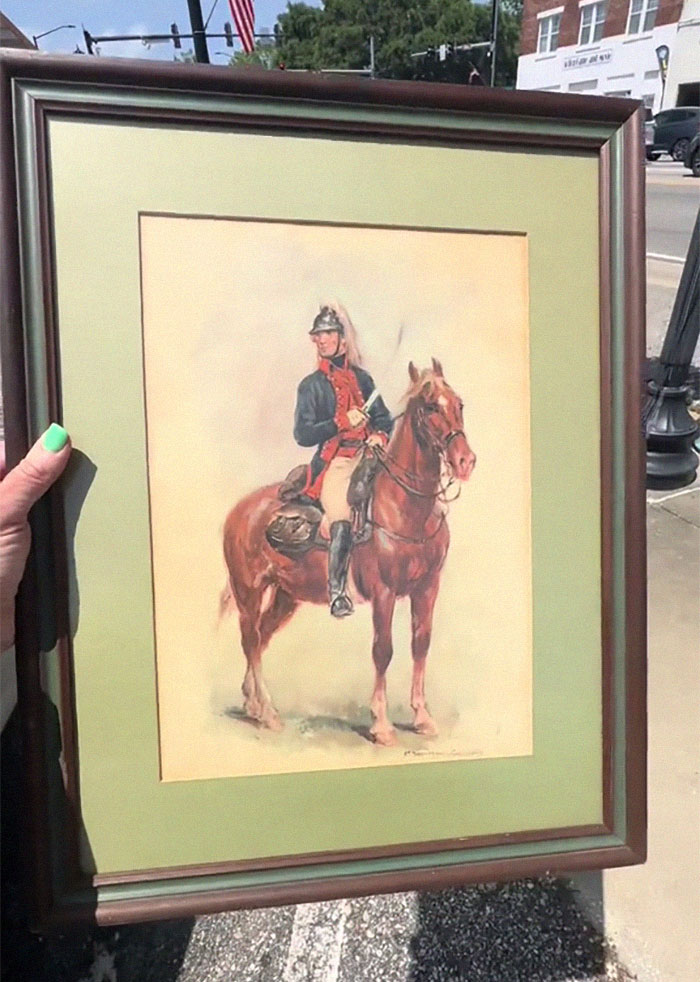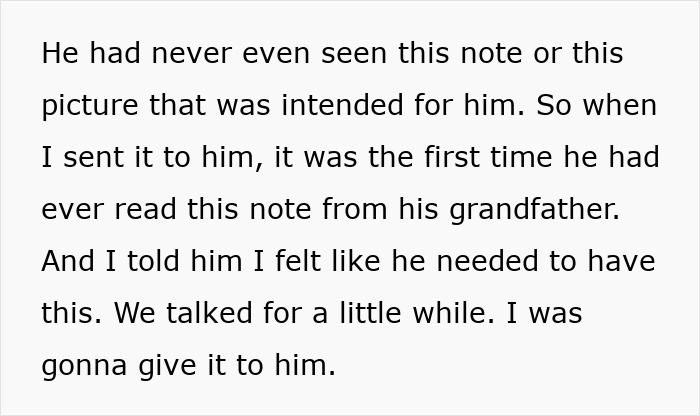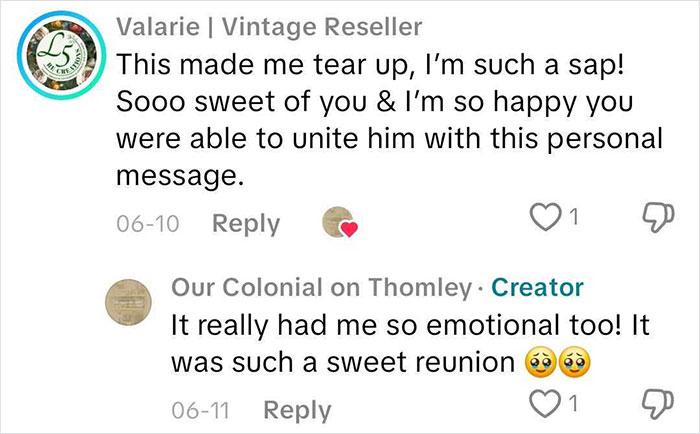Apart from the price tags that are painless to look at, another great thing about shopping in thrift stores is the story behind the items. These pre-loved goods likely have a colorful history that makes them worth more than the money you will pay for them.
This was the experience of a woman named Alexis Hadley. After buying a $2 painting, she discovered a note written behind it that showed how valuable it was to its original owner. And instead of keeping it as an addition to her art collection, Alexis decided to do what she felt was the right thing. Scroll through to see how this story unfolded.
Some thrift store finds are more valuable than what’s indicated on the price tag

A woman found a painting at a thrift store near where she lived and discovered a note written behind it


After doing some digging, she finally tracked down the person to whom the note was addressed




And instead of keeping the artwork in her collection, she decided to give it back to its rightful owner





Watch her entire video below
@our.colonial.on.t I am so happy I could connect this thrifted picture with its rightful owner 🥹 #thrifter #thrifted #thriftedart #familyhistory #reunited #sentimental ♬ original sound – Our Colonial on Thomley
Objects with a sentimental value are a representation of the people or experiences associated with them
While the painting was priced at a meager $2, it holds more value to the person to whom Alexis gave it.
According to psychology professor and nostalgia expert Krystine Batcho, Ph.D., objects with a sentimental value represent the person, experiences, and memories tied to them, making them difficult to let go of.
“Throwing away the photo (of a loved one) can feel like we’re discarding the person in the picture,” she explained in an article for Psychology Today. “It can feel disrespectful, unappreciative, or disloyal. The emotional bond can be strong.”
Licensed psychotherapist and author Amy Morin, LCSW, provided a slightly different take. In a 2023 episode of The Verywell Mind podcast, she pointed to a previous study explaining that objects with a sentimental value are often attached to a person’s self-worth.
“Someone who places a lot of value on success might hold onto a plaque from an old job, piles of college transcripts, an expensive watch that no longer works, or any other tangible reminders of achievement,” Morin said, adding that throwing out these items may cause the person to feel slightly less successful.
Whatever the case may be, Alexis did the right thing by giving back the painting to its owner. She went above and beyond by tracking the person down and ensuring it reached him. And as she told Newsweek, she does not regret giving it away.
“It just didn’t feel right to keep it,” she said. “He was clearly emotional about it and was so thankful I had come and given it to him.”
People in the comments lauded her for her gesture

















